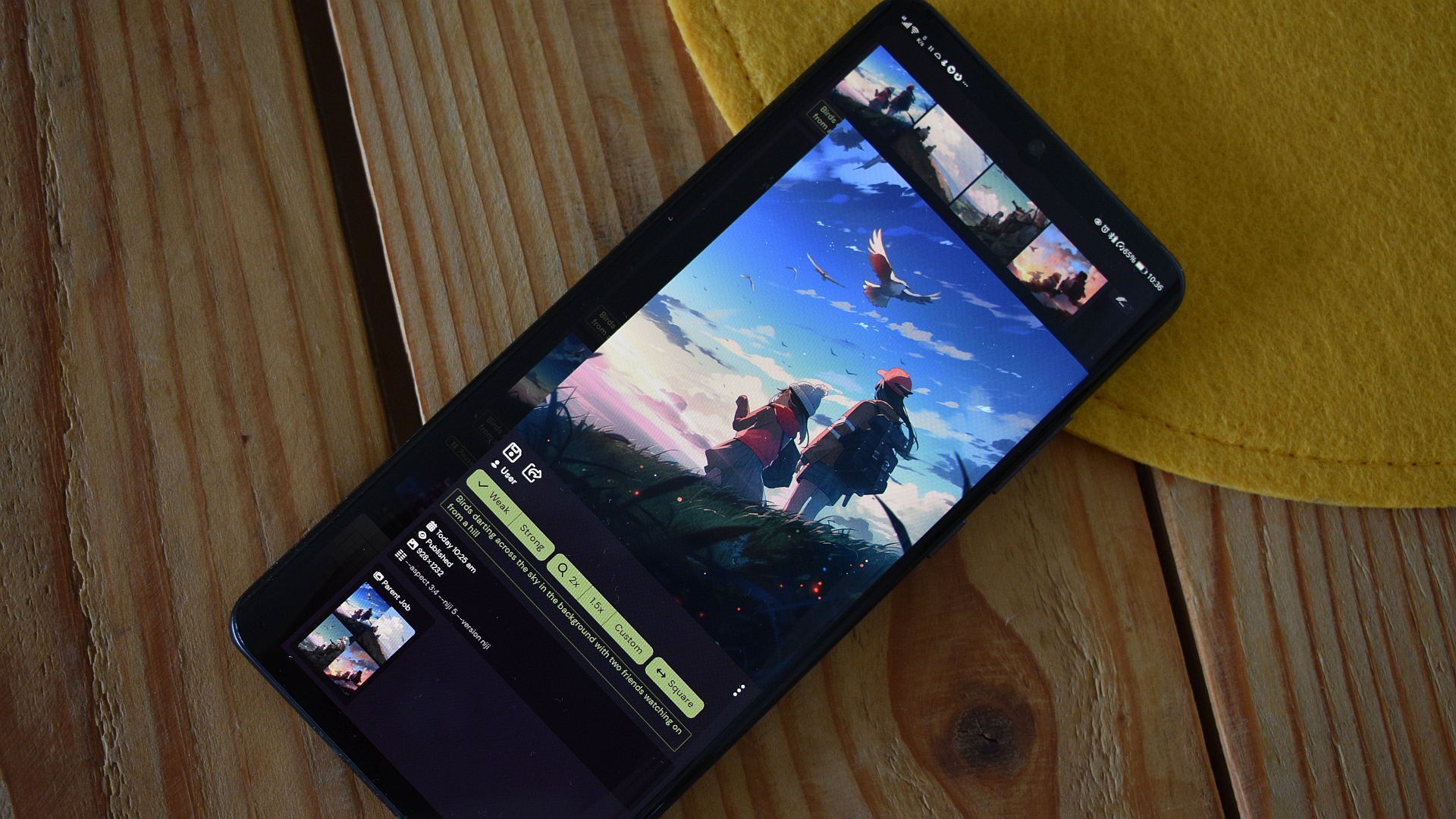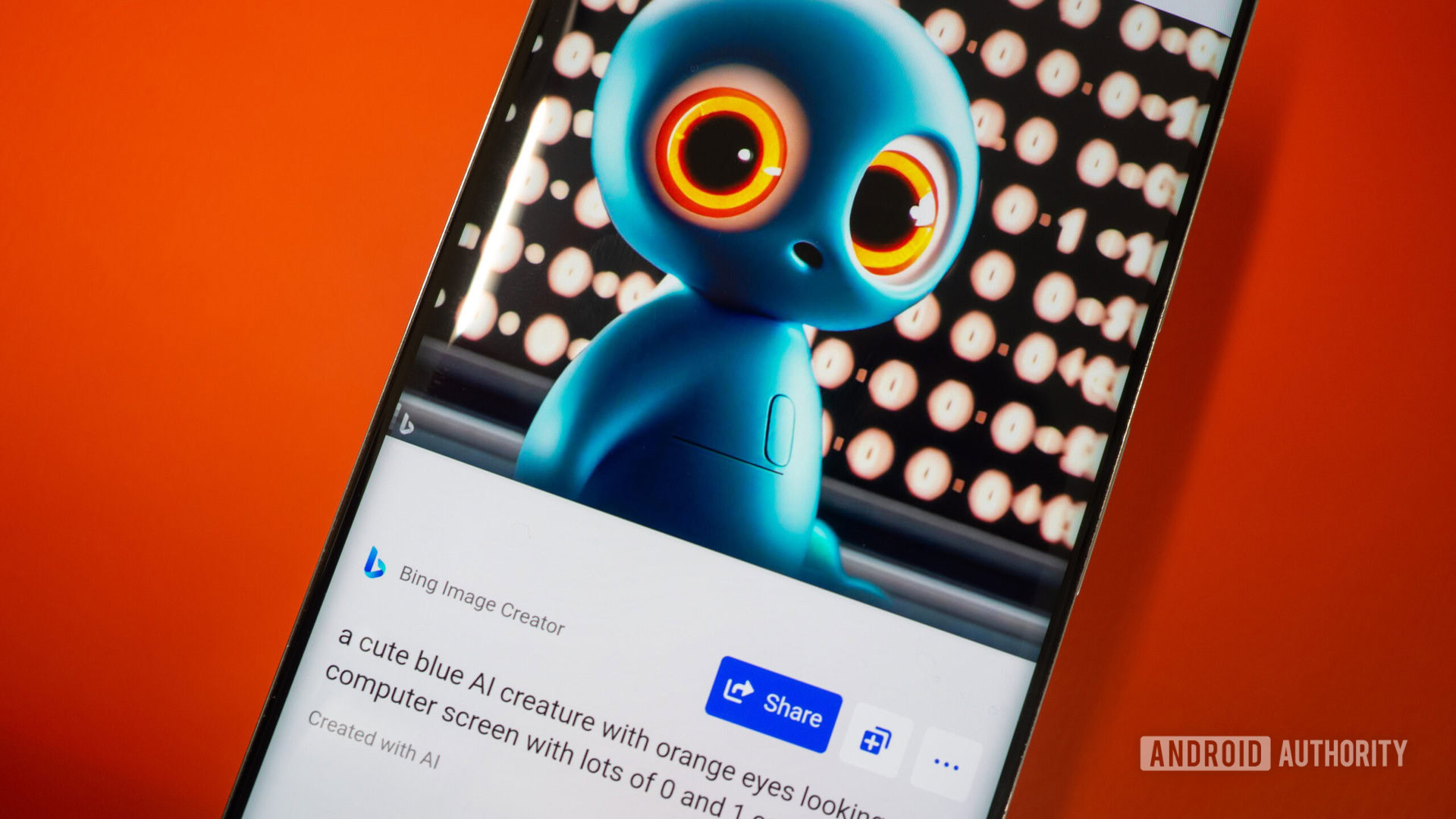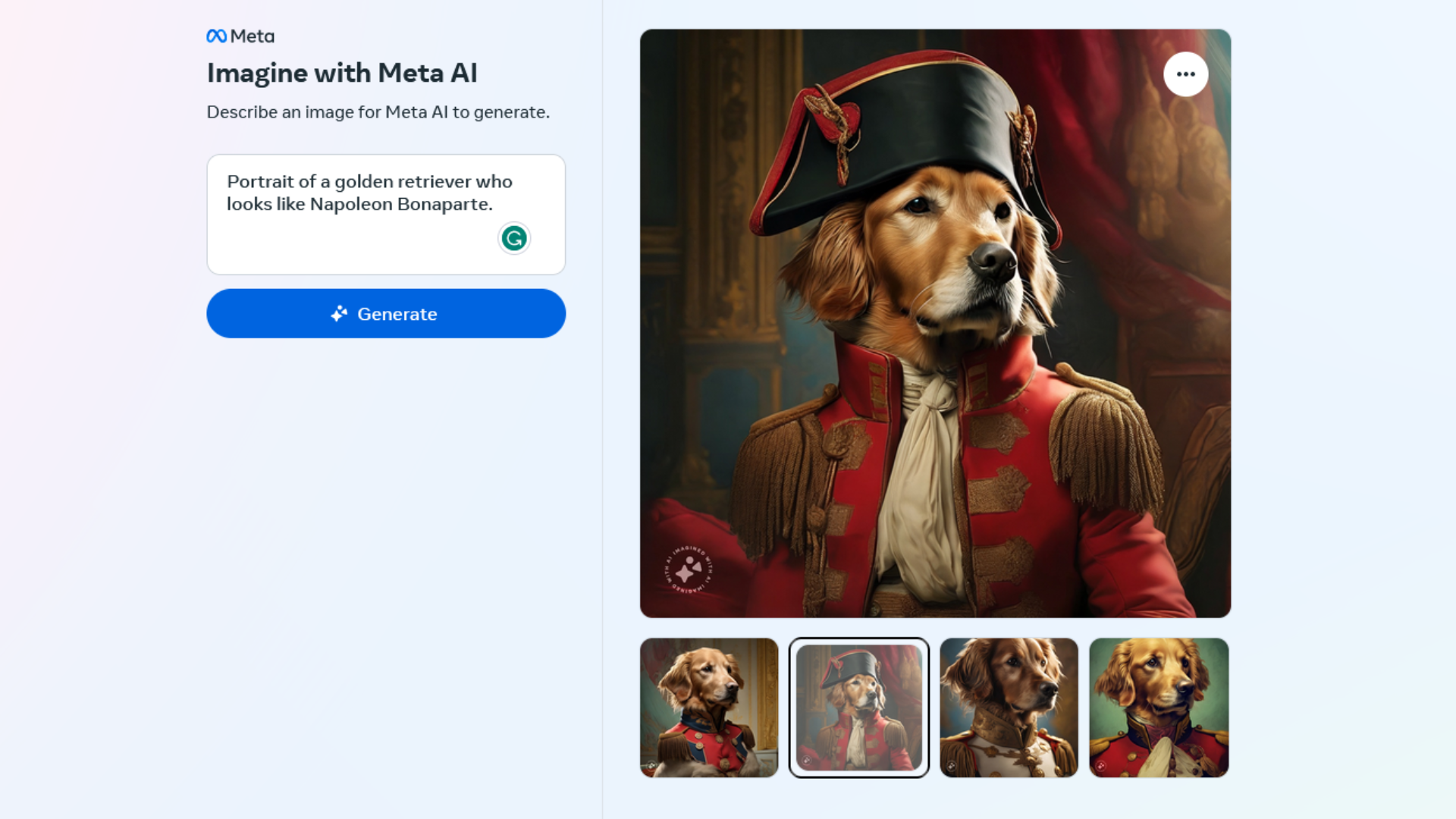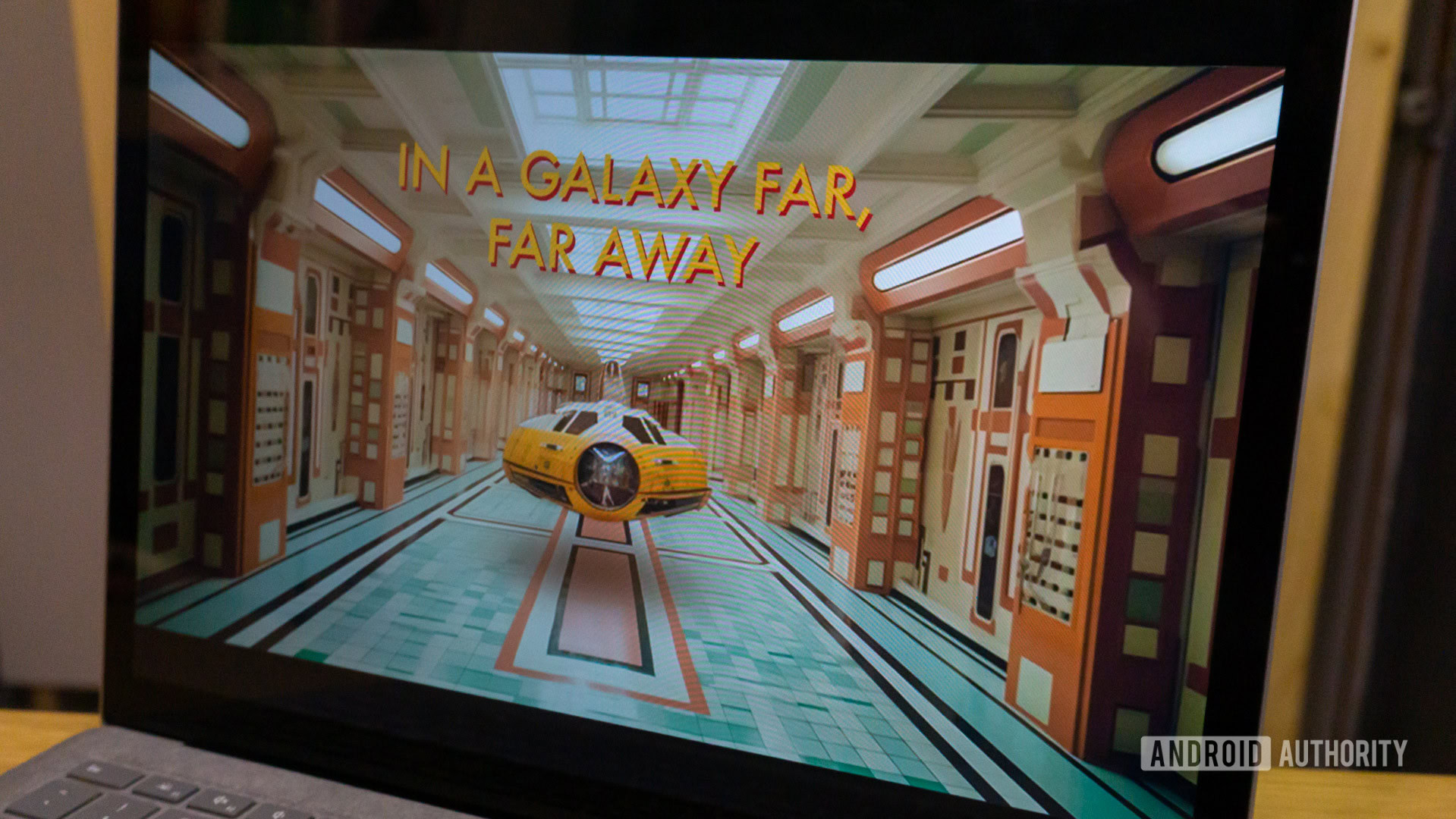Affiliate links on Android Authority may earn us a commission. Learn more.
What is AI-generated art? How does it work?

From high-profile video games to museum exhibits, AI-generated images have started seeping into creative industries far and wide. This is all thanks to a slew of generative AI innovations that have enabled computers to create realistic-looking imagery. On the flip side, however, the practice has also attracted its fair share of controversy as it threatens creative jobs and artistic freedoms. Some also allege that such tools infringe on existing copyrighted works, making them unethical at best and potentially illegal. So what exactly is AI-generated art and how does it work? Let’s break it down.
What is AI-generated art?
AI-generated art refers to any kind of digital artwork created entirely or partially with the help of artificial intelligence. Thanks to recent developments, anyone can create AI artwork using image generators like Midjourney, Stable Diffusion, and DALL-E. It has a lower barrier to entry compared to traditional forms of art. However, getting the best result still requires some amount of creativity as we’ll explore later in this article.
Until a few years ago, computers were only capable of generating relatively rudimentary art from scratch. However, all of that changed when generative AI burst onto the scene. It allowed computers to reproduce extremely fine details like hair and grass for the first time ever. The results are so impressive that even experts sometimes can’t tell that they’re looking at a purely synthetic and digital creation.
AI-generated art has become so accessible, you might even find it on your smartphone.
While you may think of AI-generated art as standalone pieces, the technology can also be used selectively. Many smartphone makers have added generative AI-based features to their photo editing apps of late. For example, Magic Editor allows you to move subjects in a scene on recent Pixel phones and Samsung’s Galaxy AI can expand images beyond their original dimensions. Likewise, Photoshop’s Generative Fill feature can add new objects into existing photos.
Since the technology’s debut only a handful of years ago, many have already found business value in AI art. Several video game makers, advertisers, and fashion companies have either already adopted or experimented with it. The benefits are clear: compared to a human, artificial art can speed up development timelines and cut costs drastically.
How is AI-generated art made?

AI image generators rely on artificial intelligence algorithms that scan through millions of text-image pairs across different categories. During this training process, the algorithm learns to recognize patterns in images and form relationships between captions and images. This is a long process but it doesn’t require much human oversight.
Researchers have come up with several different machine learning techniques to identify links between text and images over the years. However, you’ll find that diffusion models power most of the best AI image generators available today. They work by adding random Gaussian noise to images in their training dataset. Then, they attempt the reverse to try and obtain the original image. Over time, the AI model learns to generate entirely new art from a field of visual noise.
Large language models help AI image generators convert text into art.
Recent AI image generators also combine diffusion models with a large language model. If the latter sounds familiar, it’s the same technology that underpins modern chatbots like ChatGPT. It essentially allows the machine to interpret text-based prompts.
It’s worth noting that all of the above takes place behind the scenes. To make AI-generated art, you simply type a few words into an online service like Midjourney or Meta Imagine and wait for the results. Within a matter of seconds, you’ll get a handful of images to choose from. However, the quality of these results depend entirely on your input — a low quality prompt with lacking description won’t get you great results.
What are some popular AI art generators?

With technology heavyweights like Adobe, Meta, and Google competing in the AI space, you’d expect them to lead in the art generator market. However, that’s not exactly the case as smaller startups and even open-source projects have become crowd favorites, at least for now. Here’s a list of the most popular AI art generators and what makes each one unique:
- Midjourney: Unlike most other tools on this list, Midjourney isn’t backed by a large tech giant. Despite that, it’s widely regarded as one of the best AI image generators and can produce extremely photorealistic art.
- DALL-E: Based on the same foundational architecture as ChatGPT, DALL-E offered one of the first glimpses at AI-generated art in 2021. It lost some ground to Midjourney in the middle but the latest DALL-E 3 release brings it competitive once again.
- Meta Imagine: Using millions of publicly uploaded images from Facebook and Instagram, Meta Imagine is a relatively new image creator. Unlike Midjourney and DALL-E, it’s free to use with a small watermark. And thanks to its social media-focused training dataset, it can generate art with human subjects to a surprisingly accurate degree.
- Stable Diffusion: The biggest benefit to Stable Diffusion is that it’s free and open source, which means you can run it on your own (powerful) hardware. However, in our comparison between Midjourney vs Stable Diffusion, the latter didn’t always keep up. This is because Stable Diffusion has a steep learning curve and requires precise prompting for the best results.
Apart from these dedicated AI image generators, many recent smartphones also offer features that incorporate AI art. And in the coming months, we’ll also see similar features roll out into everyday apps like PowerPoint.
FAQs
In most cases, AI art is not copyrighted. However, your commercial rights will depend on the specific image generator you use.
Yes, you can sell AI-generated art. However, platforms like Midjourney may grant different rights to individuals and large businesses.
Yes, many companies already use AI-generated art commercially. However, it’s regarded as an ethical gray area in the eyes of many.
Yes, many free AI art generators exist today. Some examples include Meta Imagine, Bing Image Creator, and Stable Diffusion.
Modern AI images can fool even the most discerning human observer. Some online tools can help detect AI-generated images but won’t guarantee a 100% success rate. Your best bet is to look closely at finer details like readable text. Likewise, early image generators struggled to generate realistic-looking fingers when portraying humans.
